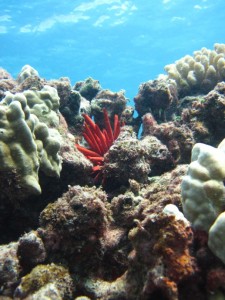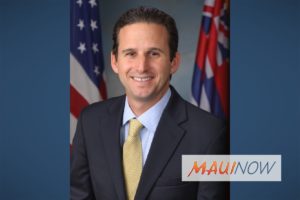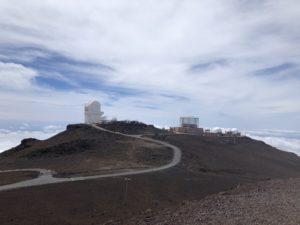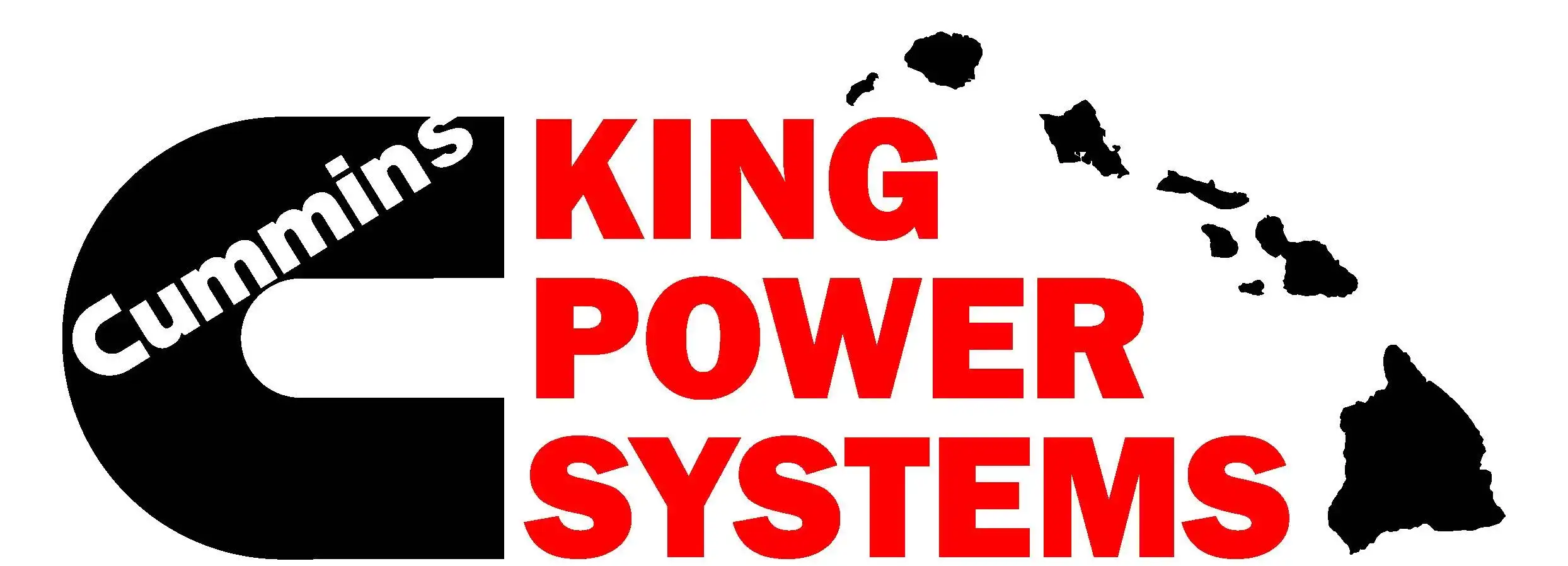Hawai‘i, Maui Benefits from Increased Federal Funding Bill
Congressional appropriators released a bipartisan spending deal on Wednesday, March 21, that will increase federal funding for critical programs that benefit Hawai‘i for fiscal year 2018.
US Senator Brian Schatz (D-Hawai‘i), a member of the Senate Appropriations Committee, successfully advanced state priorities that are now included in the final deal during committee consideration.
“With this bipartisan deal, Hawai‘i will receive a sizeable increase in federal funding. This is the best appropriations bill that we’ve seen for our state since I got here,” Sen. Schatz said. “This appropriations bill will give our state funding to create jobs, help our veterans, protect our environment, and strengthen education and health care programs.”
The deal will increase funding for clean energy projects and VA clinics in Hawai‘i, as well as Native Hawaiian health and education programs. The bill also adds billions in funding for programs that support telehealth in Hawai‘i, affordable housing programs, and the Honouliuli National Monument.
New and Increased Funding for Hawai‘i
Environmental Restoration on Formerly Used Defense Sites— $248.7 million, a $26 million increase from last year. Hawai‘i will see a 10% increase in funding. Funding supports the US Army Corps of Engineers’ continued efforts to identify and remove unexploded ordnance at former military sites across the neighbor islands and to ensure that military training and activities remain in balance with Hawai‘i’s local needs. Sen. Schatz worked to secure an additional $7 million above the President’s budget.
Highway and Transportation— $177.4 million, a $3.5 million increase from last year. This estimated funding is distributed from the Highway Trust Fund to Hawai‘i for highway maintenance and new construction of bridges, roads, and bike and pedestrian paths.
Veterans Affairs—$81.5 billion (nationwide), a $7 billion increase from last year. Funding will be used to:
· Help fund the construction of new facilities, including a new 120-bed state extended-care facility in Honolulu. The agreement includes a provision freezing all existing projects on the VA’s priority 1 grant list in an effort to clear the existing backlog and fund more projects;
· Improve aged electrical systems and leaking roofs at the VA Pacific Island Health Care System;
· Help to finally make progress toward a long-overdue community-based outpatient clinic in Hilo and replacement clinic in Kona;
· Expand VA telehealth services in rural and remote areas; and
· Fund and expand VA projects aimed at closing gaps in access in rural, highly rural and remote areas.
Affordable Housing— $41.4 million, a $5.8 million increase from last year. This estimated funding supports the HOME Investment Partnership program, which provides resources to help communities build and maintain affordable housing. It also supports the Community Development Block Grant Program, the Supportive Housing for Persons with Disabilities Program, the Supportive Housing for the Elderly Program, and HUD Homeless Assistance grant programs.
Native Hawaiian Education— $36.4 million, a $3 million increase from last year. This funding supports programs that strengthen Native Hawaiian culture, improve levels of educational attainment, and enhance family and community involvement in education. President Trump proposed eliminating funding for Native Hawaiian education programs in his budget.
Regional Coastal Resilience Grants— $30 million (nationwide), a $15 million increase from last year. The spending deal doubles the FY17 funding for this national program from $15 million to $30 million. The program funds projects that help coastal communities and ecosystems prepare for extreme weather events, climate hazards, and changing ocean conditions. In Hawai‘i, it has funded projects to improve high wave and king tide forecasts, to plan and prepare better for extreme coastal weather, and to restore native Hawaiian fishponds.

Coral reefs are often called the rainforests of the sea. They support various marine life while only comprising a small area of the ocean’s surface. With vast number of species living within and around them, they are regarded as the most diverse marine habitat. Credit: Micki Reams/NOAA
Coral Reef Conservation— $26.6 million (nationwide), a $600,000 increase from last year. This funding supports NOAA’s Coral Reef Conservation Program, which addresses the top threats to coral reef ecosystems in Hawai‘i and across the country. Working with partners, NOAA develops place-based strategies, measures the effectiveness of management efforts, and builds capacity among reef managers globally.
Clean Energy Research for the Military— $25 million, a $5 million increase from last year. Hawai‘i continues to lead in clean energy technology and implementation, which will pay dividends to our state, our economy, and our national security. This funding supports the Navy’s alternative energy research programs, including those in Hawai‘i that are working to make the Navy and its installations more resilient and less reliant on fossil fuels. Senator Schatz worked to secure $25 million in funding for the Navy’s alternative energy research and development, which was not part of the president’s budget.
National Estuarine Research Reserve including He‘eia— $25 million (nationwide), a $1.5 million increase from last year. Funding includes a $1.5 million increase, which will be used, among other things, to support the newest Reserve in the system: He‘eia. This site demonstrates the value of Native Hawaiian taro cultivation and fishpond aquaculture to maintain a healthy ecosystem. It is viewed by NOAA to be a model site because of its seamless integration of science and culture.
Telehealth Addressing the Opioid Epidemic— $20 million (nationwide), new funding. This funding supports telemedicine and distance learning services to help address the opioid epidemic in rural America.
Native Hawaiian Health Care— $17.5 million, a $3.1 million increase from last year. Native Hawaiian Health Centers, run through the Native Hawaiian Health Care Systems program, provide critical access to health education, promotion, disease prevention, and basic primary care services for thousands of Native Hawaiians. This funding will support five health centers on Hawai‘i Island, Kaua‘i, Moloka‘i, Maui, and O‘ahu.
Native American Language Preservation— $14 million (nationwide). This funding includes $12 million for Native American language preservation activities under the Administration for Native Americans and $2 million in new funding for Native American language immersion schools as authorized under the Every Student Succeeds Act. Senator Schatz co-authored the legislation to create new grants for Native American immersion schools and programs.
Hakalau Forest and Haleakalā Conservation— $13 million, an increase of about $800,000 for Hawai‘i projects. The bill includes $7 million for Hakalau Forest National Wildlife Refuge and $6 million for Haleakalā National Park, which will allow those federally protected areas to expand and thrive.
Bus and Transit— $7.6 million, a $2.6 million increase from last year. This estimated funding is distributed among the state and counties for the operation and capital costs associated with operation of public transit systems, including the Maui Bus, TheBus, Kaua‘i Bus, Hele-On Bus, and TheHandi-Van fleets.
Native Tourism— $4.4 million (nationwide), new funding. Funding includes $1 million from transportation and $3.4 million from community and economic development accounts within the Department of the Interior to implement the Schatz-led NATIVE Act, which was signed into law in September 2016. Senator Schatz authored this law to empower native communities, including Native Hawaiians, American Indians, and Alaska Natives, to tell their own stories and share in the benefits of heritage and cultural tourism in the United States.
Compact of Free Association Impact— $4 million (nationwide), a $1 million increase from last year. The United States has entered into the Compacts of Free Association with the governments of the Freely Associated States, which are the Federated States of Micronesia, the Republic of the Marshall Islands, and the Republic of Palau. These Compacts allow FAS citizens to live in the United States and receive certain benefits. This funding will help Hawai‘i provide those benefits to FAS citizens who live and work in the state.
Military Construction— $317 million, a $119 million increase from last year.
· $90 million for increment 3 of the Army’s command and control facility at Fort Shafter;
· $73.2 million for a sewer lift station and relief sewer line at Joint Base Pearl Harbor Hickam (JBPHH);
· $5 million for the consolidated training facility at JBPHH;
· $19 million for LHD pad conversions to MV-22 landing pads at Marine Corps Base Hawai‘i (Kaneohe Bay);
· $5 million for the NSA Hawai‘i Kunia tunnel entrance;
· $65.9 million for a communications/crypto facility at JBPHH;
· $25 million for an operational readiness training complex at the Pohakuloa Training Area;
· $26.5 million for the Mokapu gate entry control antiterrorism/force protection at Kaneohe Bay.
The bill also funds two Energy Resilience and Conservation Investment Program projects to improve energy security and water conservation at military installations in Hawai‘i. These projects include:
· $6.2 million for HVAC upgrades at Kaneohe Bay; and
· $1.4 million for a salt water pumping system for the Navy at JBPHH.
Protected Funding
Tsunami Program—$31.6 million (nationwide), despite major cuts proposed by President Trump. The NOAA Tsunami Program provides funding to coastal states for preparedness activities such as inundation mapping, disaster planning, and tsunami education. Funding includes $12.2 million for tsunami monitoring, $13.4 million for forecasts, and $6 million for a grant program, which states can compete for, to prepare inundation maps and assist with outreach and education. Hawai‘i relies on all three components of the program. Despite deep cuts proposed by President Trump, Senator Schatz helped protect funding for this critical program.
East-West Center— $16.7 million, despite President Trump’s proposed elimination. The East-West Center directly supports the US rebalance to the Asia Pacific through cooperative study, research, and dialogue with countries in the region. It is the only US institution that provides a multilateral approach through research and exchange programs.
Japanese American Confinement Sites including Honouliuli— $2.9 million (nationwide), despite President Trump’s proposed elimination. Funding will support Japanese American Confinement Sites grants. JACS grants support the preservation of Japanese American internment camps, including the Honouliuli National Monument, through partnerships with local preservation groups. Grants may also be used to encourage and support the research, interpretation, and preservation of internment camps to help prevent this injustice from being repeated.
Native Hawaiian Housing— $2 million, despite President Trump’s proposed elimination. The Native Hawaiian Housing Block Grant Program provides financial assistance for Native Hawaiian families to obtain new homes, make renovations, build community facilities, and receive housing services, including counseling, financial literacy and other critical resources to address housing disparities.
Hansen’s Disease Treatment in Hawai‘i— $1.9 million, despite President Trump’s proposed elimination. Under this Health Resources and Services Administration program, payments are made to the State of Hawai‘i for the medical care and treatment of persons with Hansen’s Disease in its hospital and clinic facilities in Kalaupapa and Honolulu. Programs supported by HRSA to address Hansen’s Disease are particularly important in states like Hawai‘i that have large populations of immigrants from nations with high rates of the disease.
Racial and Ethnic Approaches to Community Health (REACH)— $1 million, despite President Trump’s proposed elimination. REACH is a national program to reduce racial and ethnic health disparities by providing grants to community-based organizations that work to reduce chronic illnesses and encourage healthy lifestyles in underserved populations. This estimate is based on last year’s allocation of $1 million in grants to Hawai‘i.
Papahānaumokuākea Marine National Monument— $500,000. The spending deal authorizes NOAA to make a competitive grant of up to $500,000 for research and management activities in Papahānaumokuākea. The funding is subject to a 100% non-federal match, and will bring new resources to keep our Hawaiian archipelago healthy and productive.
Other Highlights for Hawai‘i
Maui Space Surveillance System— $10.4 million. This funding supports DoD programs that help track, identify, and characterize space objects of interest, including the Dynamic Optical Telescope System.
High Performance Computing Modernization Program— $221 million, despite President Trump’s $39 million proposed cut. This funding supports DoD’s regional supercomputing centers, including the Maui High Performance Computing Center. Working with Committee leaders, Sen. Schatz was able to increase funding for the program by $39 million above the president’s budget to ensure that DoD has the funding it needs to upgrade the technology at MHPCC so that it can continue to support the military’s current and future high-performance computing needs in Hawai‘i and the Pacific.
Endangered Hawaiian Monk Seals and Sea Turtles Protection— $8 million. Hawaiian monk seals are the only seal species in the world that live in only one nation’s territorial waters. Because these seals are an extremely endangered species, we have a responsibility to help them toward recovery. This funding will continue to support monk seal conservation and recovery. Funding will also support sea turtle conservation activities such as interagency consultation and technical assistance on marine turtle by-catch reduction strategies, cooperative conservation actions in the greater Pacific region, marine turtle stock assessments and scientific research projects.











